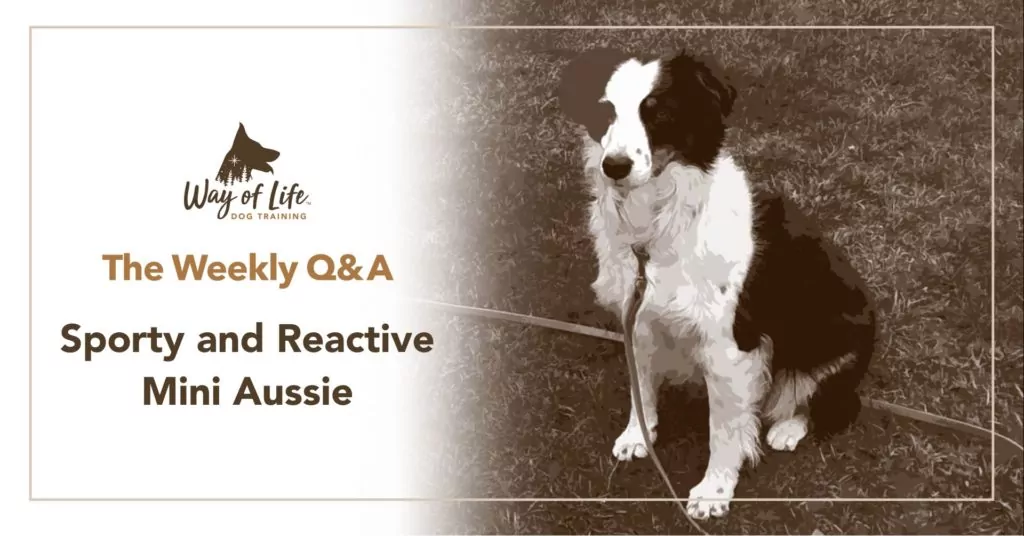
Q: We have a five-year old Mini Aussie rescue who’s been with us since she was about six months old. She is quite reactive to dogs and sounds of barking dogs. We believe much of this is due to her background as a rescue and that having been spayed early probably didn’t help. We are in three different sports – obedience, nosework, and we herd on occasion. Sport is wonderful for dogs of her breed so we’re not sure why it doesn’t appear to be helping.
A: Thank you for reaching out about your Mini Aussie. I get a lot of questions like these from owners of working breeds, particularly herding-type dogs that are active in sport. Many wonder why their dogs’ stimulating lives don’t seem to be helping with their behavior issues.
Surely, difficult beginnings can disadvantage the most resilient of dogs and I for one am not a fan of early spays and neuters. With that said, I know from experience and share in my upcoming book the power of way of life. Among all the factors behind behavior – genetics, background, temperament, and so on – way of life is the only one we have control over and the factor we consistently underestimate.
In the Way of Life method, sport is key but we must time the introduction to sport carefully. Often, sporty types just can’t wait to get their new dog or pup started in their sport. Meanwhile, their relationship with that animal is still fragile. Without a minimum of bond and a sense of safety between human and dog, sport situations expose dogs to premature social demands and performance pressures. When the dogs act up, whether in or out of these situations, we label them “reactive” or “fearful,” overlooking the poor timing of these activities.
What I recommend is to back off from pursuing sport as intensely as you have – practice less often and in a private instead of group format, if possible. Your goal at Foundations isn’t performance in sport anyway, it’s a basis of safety and success accomplished by keeping things simple and intimate. Yes, you exercise and challenge your dog, but you do so without performance expectations or social exposure.
Teach your dogs they can do no wrong being with you before going to places where they might. That way when you start sport, your dog knows you have their back.